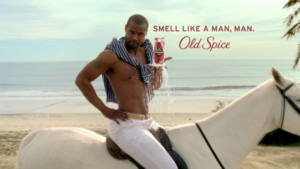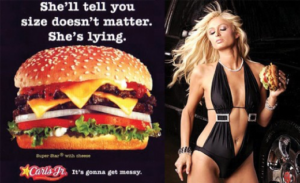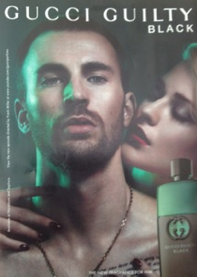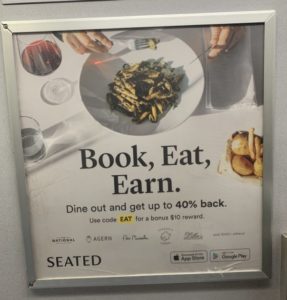Home » Articles posted by Juan Marte Melendez
Author Archives: Juan Marte Melendez
Appeal to Patriotism
#1- Donald Trump has used patriotism as a rhetorical device for national unity and pride is what America needs.
Trump’s nationalism is a patriotic appeal and he tries to persuade the audience (Americans) about their country and their story. He is appealing to this time-honored idea to restore economic growth and international clout. Also, he is reviving the greatness of the American spirit.
Mr. Trump uses slogans such as “Keep America Great, Make America Great Again” to win the elections. He persuaded the people with an emotional national pride.
#2- The Iraq War Decision
Leaders appeal to patriotism to motivate soldiers to fight in a war and motivate the public to support a war. Ex-president George W Bush appealed to patriotism to declare war in 2003 against Iraq after the 9/11 terrorist attacks. He persuaded Americans to agree with the idea that it was necessary a war. I want to quote a paragraph of his speech: “The United States, with other countries, will work to advance liberty and peace in that region. Our goal will not be achieved overnight, but it can come over time. The power and appeal of human liberty are felt in every life and every land. And the greatest power of freedom is to overcome hatred and violence, and turn the creative gifts of men and women to the pursuits of peace”. He implied that a patriot loves his country and is loyal to his country to justify a war.
Scarcity Appeal and Fake News
Scarcity Appeal
I think that everybody has bought a particular product because of a limitation. Scarcity is a good strategy to encourage the audience to take action.
Example #1
Amazon- Today’s Deal
Every day I use the Amazon app to see what deals they have. Until now, I realize that’s scarcity appeal. Also, they have deals for holiday seasons, like Black Friday and Cyber Monday. Recently I bought a TV because of it sad: hurry, limited time. I can’t believe that I was a target for that advertising. How can I identify if the offer is a real deal or they are only using Scarcity Appeal to sell the product?
Example #2
Macy’s Wine Cellar
Every week I receive an email from Macy’s Wine Cellar: over 25% Off- This Weekend Only
In the beginning, I thought it was a good promo (I bought it too- do not blame me…), but I receive the same promo every weekend. They try to sell wines with an offer only available during that time period. Now, I will pay more attention to the scarcity strategy to avoid shopping unnecessarily.
Fake News
Example #1
5G mobile networks spread COVID-19
In March, interest spiked around the time that singer Keri Hilson tweeted:
“People have been trying to warn us about 5G for YEARS. Petitions, organizations, studies…what we’re going [through] is the [effects] of radiation,” she warned. “5G launched in CHINA. Nov 1, 2019. People dropped dead. See attached & go to my IG stories for more. TURN OFF 5G by disabling LTE!!!”
Celebrities like her started to tell the followers about the supposed link between of 5G and the pandemic. It is no scientific evidence that virus can travel on radio waves/ mobile networks. COVID-19 is spreading in many countries that do not have 5G, for example, Malaysia, Iran, France, Singapore, and Nigeria. Her statement is not enough to prove that theory. The virus is spread through respiratory droplets when an infected person coughs, sneezes, or speaks. People can also be infected by touching a contaminated surface and then their eyes, mouth, and nose.
Example #2
Exposing yourself to the sun or to temperatures higher than 77F degrees DOES NOT prevent the coronavirus disease (COVID-19)
You can catch COVID-19, no matter how sunny or hot the weather is. Countries with hot weather have reported cases of COVID-19. To protect yourself, make sure you clean your hands frequently and thoroughly and avoid touching your eyes, mouth, and nose.
UNESCO said: “During this coronavirus pandemic, ‘fake news’ is putting lives at risk”. I haven’t heard much fake news regarding a topic. This a dangerous situation because when spreading false information you could promote discouragement, sadness, worries. If you receive news, it is good to analyze where the source comes from, how reliable it is and the impact it can cause if you spread it.
Euphemism and Transfer
Euphemism
You’re fired!
Many employees use another word or expression to inform their employers that they are fired. You are being involuntarily separated, you are being realigned, there is a surplus reduction in personnel, or the staff is being re-engineered or right-sized. Euphemisms refer to polite, indirect expressions that replace words and phrases considered harsh and impolite, or which suggest something unpleasant.
Transfer
Promo tax preparers using the image of Uncle Sam
In tax season, I see propagandist carries over the authority of Uncle Sam, which has been a famous symbol of the US government in American culture and a manifestation of patriotic emotion. They appeal to the nationalism and responsibility as a businessman to fill out the taxes.
Cognitive Biases
Example #1 Anchoring
Zara sale 50% off
If you tell someone a jean normally costs $29.99 they will instinctively think they have found a bargain when they see it advertised somewhere for 14.49. Likewise, they will assume the item is overpriced if they see it on sale somewhere else for $34.99. The first price acts as an anchor, influencing people’s interpretation of the prices they come across in the future.
we compare different offers against one another and we make decisions based on comparative values.
Example #2 Reactance
Nazis propaganda against Jews
The Nazi propaganda machine exploited ordinary Germans by encouraging them to be co-producers of a false reality. Jews were either portrayed as seedy, degenerate, ugly, masses associated with vermin, or they were portrayed as greedy, fat, and unpleasant elements who sided with the enemy. Hitler created the idea that freedom and the Germany economy had been lost because of Jews. I also create feelings of hatred and aggression against them and that it was necessary to take extermination measures to restore a new Germany. Nazis used propaganda to define the enemy (Jews), and they sought to elicit one or more cognitive biases to archive their goal.
Romance, Gender, and Sex
Romance
#1

Context: This Ad promotes PrEP to prevent HIV.GILEAD uses romance as rhetorical devices to persuade the audience that PrEP treatment is healthy for individuals and couples.
#2

Context: This Ad promotes Norwegian Cruise using a couple with the slogan: Feel free to follow the sun. It implants that it is a romantic idea to take a cruise with your partner to a sunny place.
Gender
#1

Context: This commercial serves as a perfect representation of gender roles today because it implants that beer is for men and makes them more masculine and elegant.
#2

Context: This Ad is an example of gender stereotypes “smell like a man, man”. The Ad presents a muscular man, no shirt wearing, horse riding, beach-going, type of man. It implants that a man uses Old Spice deodorant will become more masculine.
Sex
#1

Context: The most effective way to encourage people to buy a product is through sex and provocative advertising campaign. We are constantly fed with the image of naked and sexual human bodies. The Ad persuades the audience to say we buy food because we think is sexy. Also, the Ad is talking about the burger’s size? What is the correlation between food and the model? Definitely, it is a double message.
#2

Context: Guicci’s men’s fragrance “Guilty” creates a sexual image of women. There is a man with a woman seductively wrapped around his body. The company intentionally uses sex appeal to sell the product.
Testimonial
Testimonial Examples:
1- Jennifer Lopez on Twiter (https://twitter.com/JLo/status/1227653759754481664): “Guys, have you played #CoinMaster?! …”

Context: JLo is a big celebrity. I’m her fan. She is promoting a new game called CoinMaster. She persuades the audience to download the app. It’s effective because I downloaded already.
2- Jade Roller promoted by Tracee Ellis Ross
Context: I asked my co-worker if she has bought something because somebody promoted it. She told me that she only bought a Jade Roller because Tracee Ellis Ross was using it on a TV show, although previously she didn’t believe the product worked. Testimonial advertising persuaded her to buy it; however, she just used it one time.
Bandwagon and Namecalling
Bandwagon: “Keep America Great” by Donald Trump.
Keep America Great is the new slogan of Donald Trump’s presidential campaign for this year 2020. With this new slogan, Trump intends to get the citizens to vote to win the next election once again. He is implying that he already made America great in his first presidential term and that he will continue to do so. However, what does the word “great” mean? It is a very subjective and interpretive adjective for each person. “Great” could be to reduce taxes, less drastic immigration policies, etc., which would not be “great” for others. This slogan is just an ideological thought that has become a political populism, without any analysis or statistics to guarantee that America will be “great” with Donald Trump as president.
We must be more objective when choosing a presidential candidate, not just choosing anyone for a contagious slogan.
Name-calling: “Illegal Immigrant”.
It is a term to establish that a person does not have immigration status, it has been used to offend and discriminate against a specific population that is not authorized by the government to reside in a particular country. I agree with an article, “Should I use the term” Illegal immigrant ” by Jeffry Toobin, https://www.newyorker.com/news/daily-comment/should-i-use-the-term-illegal-immigrant. He states that using the term” illegal immigrant “is inaccurate, and most of the time, the use of the word ‘illegal’ is to refer to a person who is confined to exactly one group of people: Migrants.
Although “illegal immigrant” is not a namecalling, but in recent times it has been used to denigrate undocumented immigrants.
Analysis of an Ad Assignment

SEATED is a new application to book reservations in different restaurants and get rewards afterward. This application is presented as a modern alternative to explore a great diversity of elegant and prestigious restaurants statewide.
SEATED persuades the audience to use the application by following these steps:
1- Find a spot: Browse over 1,500 curated restaurants and bars listed in the application. Sort by location cuisine, price, and more. It presents a large number of restaurants to explore using filters according to your preference.
2- Take a seat: Book a reservation ahead of time or use their walk-in feature for casual dining. You have the option to make the reservation in advance or make it when you are walking around the city.
3- When you are finished, snap a picture of your receipt. You must take a photo and upload it in order to get benefits.
4- Get rewards: Earn a percentage back in rewards you can spend on brands such as Amazon, Uber, Delta, Airbnb, Sephora, Nordstrom, and more.
The Ad relies on Restaurants are vital threads in our social fabric, but options like food delivery and meal kits are keeping many of us at home. This means less profit for the average restaurant. Seated rewards you for dining out more often, which is suitable for restaurants, good for you, and good for society!
The intended audience of the Ad is for people who like dining out; therefore, they will get rewards if they use the Ad. Also, it tries to convey people to go out for diner instead of ordering food delivery.
The strategy is to persuade the audience affirming dining out has never been so rewarding. It has selected a lot of restaurants to discover and give coupons for discounts. Besides that, they offer rewards for your spending at dinner. It sounds a good deal if you want to spend money, having a good dinner.
Another strategy is to make the audience aware of the importance of going out to dinner to boost the economy. The Ad promotes social integration since it tries to make people share more and be less isolated at home.
The Ad appeal to logos because it argues by logic. If you are frequently visiting restaurants for dining out, now you will get rewards and explore more and more restaurants. The Ad does not appeal to ethos because it hasn’t established an excellent reputation yet. I understand that it is a new Ad; nevertheless, it doesn’t show proof or statistic to corroborate its reputation and credibility. The Ad appeal to pathos because it uses emotions to connect with the audience. The Ad is presented as a social being that connects people; for instance, it offers that dining out is vital to society.
Clearly, the Ad is not effective at this moment. It encourages us to go out for dinner; however, there is a real problem outside with the coronavirus. Nobody wants to be outside to be exposed to the virus. For example, authorities are calling its residents to avoid public and crowed spaces or being in quarantine or isolation.
Weapons of Math Destruction
1- What data do you already track about yourself, or have you tracked in the past but no longer pay attention to? Why have you made these choices? What do you get out of it? What are the advantages/disadvantages of self-tracking? Of using digital devices to help us do it? What patterns do you think are present in your life, but don’t have the data to back it up? (For example, the person who found that coffee actually hurts his concentration, or the person who found that watching a bad movie made him feel negative about his own film career).
Since 2012 I started tracking my finances. I created a workbook in Excel to self-track my income and expenses. It has been eight years, and I continue with more rigorous monitoring. Now I have created a dependency on that data. I put everything, to be specific what I spend, what I buy, and what I have to pay. I compare my budget monthly, and it helps me to determine when I should reduce expenses. It is a great help for me to know the progress of my budget; however, it is stressful to track the data every single day. I can’t even make any payments if I don’t have the data available. I want to be more flexible with my financial situation and not depend on the constant and continuous monitoring of my finances.
2- Lookup John Jay on the U.S. News and World Report, as well as any other colleges you may have applied to (and/or attended in the past, if you are a transfer student). What kind of picture does it paint of John Jay? Is that image accurate to your own experience so far? What information were you able to access, and what were you not able to access? Do the rankings/methodology seem fair? Why or why not? What would you change if you were in charge of the ranking algorithm, and why? What additional questions do you have about
This is my first time in college in the United States. I only applied for John Jay, which has the major I was interested in. I did not know about the acceptance rate or rankings, because in my country, the education system is very different. After reading all of the articles Weapon of Math Destruction: Chapter 3, College Rakings, and SAT selling student info, I can understand more about US college and its admission process.
According to US News College, John Jay College of Criminal Justice is ranked #100 in Regional Universities North, #8 in Top Performers on Social Mobility, and #27 in Top Public Schools. It looks that John Jay has a good raking, and that image is accurate to my own experience so far. I was able to find out helpful information, such as the total undergraduate enrollment, tuition and fees, alumni starting salaries, and the acceptance rate. I was not able to access the data where the numbers came from and how they assigned those numbers. Something that I was surprised, it was the acceptance rate. John Jay has an acceptance rate of 41%. What does it mean? Was I lucky to be accepted? Did my application was good enough or was a single number of the data? The article “For Sale: SAT-Takers’ Names. Colleges Buy Student Data and Boost Exclusivity” by Douglas Belkin, published at the Wall Street Journal, explains how colleges buy SAT scores to become a more selective college. The article brings out many problems because of this practice. Students do everything to be part of the “elite colleges,” even parents have done illegal things to put their children into them.
Colleges buy SAT-Takers’ Names to offer fake admissions to students. The article cites: “Then the kids say, ‘well, why did you recruit me if you weren’t going to let me in?’ They do it to increase the number of applications; you’ve got to keep getting your denominator up for your admit rate.”
I do not think this methodology seems fair. Colleges accept students only if they have a good SAT or GPA score. Students’ applications are evaluated based on data (SAT score). What happens if the data goes wrong? Why SAT score is so essential to determine the success of students?
I agree with you when you said: many students get anxious when it comes to taking a test, no matter how hard they study. In general, do you consider that students don’t have to be grade? If yes, how to determine the student’s academic progress?



Appeal to Fear
#1: Coronavirus fears spook markets as outbreak spreads; Trump called news conference, accuses media of “panicking markets”
Context: President Trump on Twitter called a news conference to discuss the spread of the virus and he accused the media os stroking panic about financial markets. is it true? Who knows. Media are saying a lot of information about Coronavirus. We are getting scared. If I see somebody on the street, train or bus, coughing or sneezing, I think it’s the virus. Also, I’m following recommendations more than habitual, for example, I wash my hands several times a day. It really affects me the ad of Coronavirus.
# 2: A commercial for a security company that shows someone breaking into a home in the middle of the night.
Context: It is an effective rhetorical device because is based on the emotion of fear. People are afraid of thieves and the company brings protection, security cameras, 24 hours vigilance, etc.
Appeal to Humor
#1: “I notice that everyone in favor of abortion has already born” Ronald Reagan.
Context: This was his position on abortion during the presidential debates in 1980. Abortion has been a serious debate around the world. He used humor to persuade the audience by saying the truth.
#2: Sedal Shampoo Comercial
Context: It is funny to see two lions: before and after. The lion before has the hair wild, nature and untamed, and the lion after has perfect hair and tamed hair because of the product.